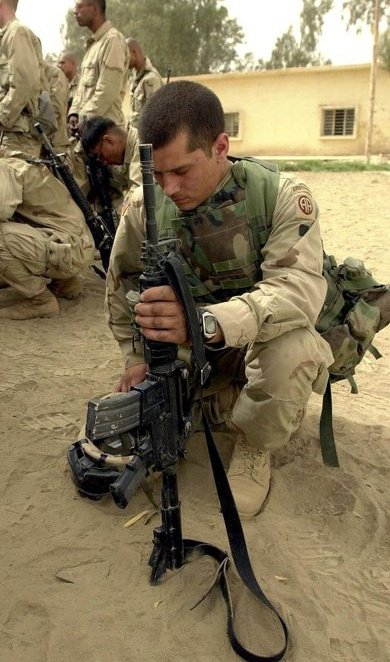
 |
| During his graduate studies at Oakland University, Army veteran Jason McLott explored the anesthesia's effect on PTSD patients. |
“I was diagnosed with PTSD and so have a unique insight in helping patients who are dealing with it,” McLott said. “As a nurse anesthetist student, I found very little information on anesthesia’s effect on PTSD patients and wanted to explore it further.”
During his graduate studies at OU, McLott investigated the physiological reaction of anesthesia on veterans diagnosed with PTSD. With the help of classmates and co-authors Jerry Jurecic and Luke Hemphill, along with faculty adviser Karen Dunn, McLott developed an integrative literature review on his theory of emergence delirium: a condition in which patients are combative when being awakened from anesthesia.
"Our research provides a theoretical explanation of why soldiers suffering from PTSD have emergence delirium,” said Dunn. “Researchers can test this theory by possibly administering anti-anxiety medications prior to waking soldiers up, calming the [brain’s emotional center], and thus preventing the occurrence of combative behavior.”
According to the U.S. Department of Veteran Affairs, 11-20 percent of Iraqi and Afghanistan war veterans have PTSD. It is estimated that 30 percent of Vietnam veterans and 12 percent of Gulf War veterans have been diagnosed with the disorder.
In 2013, McLott’s theory was published in the American Association of Nurse Anesthetists (AANA) journal. Titled “Development of an amygdalocentric neurocircuitry-reactive aggression theoretical model of emergence delirium in posttraumatic stress disorder: an integrative literature review," the piece suggests a solution to emergence delirium in PTSD patients. When being awakened from anesthesia, the brain can be calmed by being provided anti-anxiety medication and a quiet environment.
“Different protocols could be tested, which could eventually lead to the development of clinical guidelines for veterans," Dunn said. “The team’s research accomplishment is a noteworthy contribution to the science of anesthesia.”
McLott graduated from OU in 2012 with a Master of Science in Nursing: Nurse Anesthesia. He now resides in Spruce Pine, North Carolina, where he utilizes his theory as a practicing certified registered nurse anesthetist.